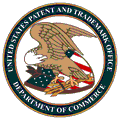“What’s in a name? That which we call a rose
By any other name would smell as sweet.”
Would Chanel® perfume smell as sweet under any other name? No. Branding matters.
Today’s brands use company names, product lines, domain addresses, trademarks, logos, slogans, social media handles, keyword search, and hashtags as part of a growing marketing portfolio to reach and sell customers online. There is a virtual war in online marketing taking place, fueled by search queries on Google, Facebook Graph, Amazon, E-Bay, Yelp and other major databases. When it comes to e-commerce, branding definitely matters.
Branding | Trademarks | Competitive Strategy
McDonalds Golden Arches – Trademark Registration No. 1753026
Trademarks are an important part of branding because they prevent competitors from trading on the goodwill created by the brand owner. Trademark law is rooted in consumer protection policy, unlike copyright and patent law that is designed to reward innovation and creativity. A trademark provides legal protection to brands by providing exclusive rights to use their marks to promote their goods and services. The legal definition of a trademark is “a source identifier of goods or services promoted under a word, phrase, symbol or design, or combination thereof.” For example McDonalds’ famous Golden Arches is a protected trademark U.S. Registration No. 1753026 filed in international class 043 for restaurant services. From a branding perspective, millions of consumers have a relationship with the McDonalds’ trademarks whether positive or negative. From a trademark perspective, under the law no restaurant can use a word, phrase, symbol or design, or combination thereof that is likely to cause confusion with the Golden Arches or other McDonalds’ trademarks.
Corporation Name | Limited Liability Company | DBAs (Doing Business As)
Non-experts in intellectual property law commonly confuse business names with trademarks. A state’s authorization to form a business entity, whether structured as a sole proprietorships, partnership, corporation, or limited liability does not automatically grant trademark rights to the owner(s). The United States Patent and Trademark Office (USPTO), an agency of the U.S. Department of Commerce that issues patents and trademarks takes the position that use of a business name generally filed at the state or county level does not necessarily qualify as trademark use, though other use of a business name as the source of goods or services may qualify as a trademark in some instances. This depends on whether the business name is distinguishable and otherwise legal under trademark law. It should be noted that while entity formation is not a substitute for trademark use, it can be a basis for trademark infringement liability with a senior mark or currently existing trademark.
Domain Names | Keywords | Social Media
Now take the centuries old common law trademark rules which are generally valid in the United States, and apply it to digital media, web, social, mobile, location based services, mobile applications, e-commerce, and keyword search. Legal and marketing strategies get interesting very quickly.
Much like a business name, use of a domain name, social media handle or keyword that is likely to cause confusion with an existing trademark may be constitute trademark infringement.

The United States Patent & Trademark Office (USPTO) differentiates domain names and trademarks by stating “use of a domain name only as part of a web address does not qualify as source-indicating trademark use, though other prominent use apart from the web address may qualify as trademark use.” In plain english this means “it depends”. The answer will almost always be case specific depending on the actual domain name (or social media handle), the goods and services of the business, whether another company has a trademark interest in these properties, and many other complex legal factors analyzed by trademark attorneys and judges experienced in trademark and consumer protection law. Much like trademark protection of a word, slogan or logo, in instances where the domain name is more distinguishable and serves as a source identifier and not just a web address, it is more likely to gain protection under trademark law (think priceline.com vs. losangelespharamacy.com). And much like business names, use of a domain name or social media handle that is likely to cause confusion with an existing trademark may constitute infringement and subject its users to legal liability.
Digital Search Branding & Trademarks
Business owners are advised to consult a trademark attorney experienced in digital marketing to consider legal use of business names, company brands, domain names, and a never ending medley social media platforms proven to be fruitful marketing channels for brands. What’s in a name? Search engine optimization, online monthly traffic impact, hashtags, and customer relationships and arguably every marketing dollar spent on promotion. Take it from Shakespeare: trademarks matter.

Disclaimer: The content above is a discussion of legal issues and general information; it does not constitute legal advice and should not be used as such without seeking professional legal counsel. Reading the content above does not create an attorney-client relationship. All trademarks are the property of L.A. Tech & Media Law Firm or their respective owners. Copyright 2013. All rights reserved.


